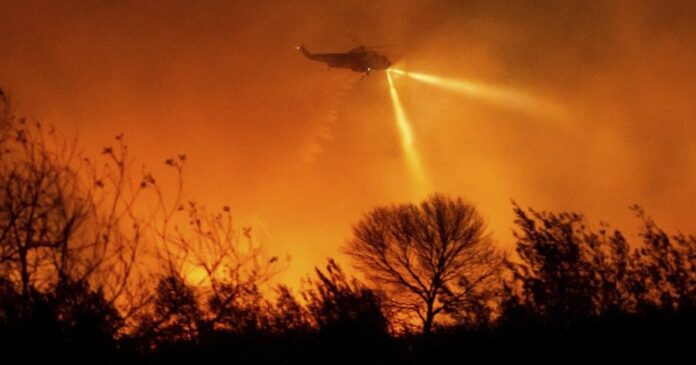
(The Hill) – Human-caused climate change was responsible for about a quarter of the fuel available for the wildfires that have devastated the Los Angeles area, according to research from University of California, Los Angeles scientists published Monday.
Researchers noted that the fires, the most destructive in the region’s history, would have been intense and destructive without the impact of climate change. However, a major compounding factor was likely the downstream effects of two unusually wet winters the Southern California region saw in recent years.
Other factors in the fires’ intensities included high but “not entirely unprecedented” Santa Ana winds, researchers noted, adding that there is no apparent relationship between planetary warming and Santa Ana wind intensity.
This weather created more vegetation that was dried out into ideal fuel for fires by atypical heat last summer and fall and a delayed start to the area’s most recent rainy season. During the period between May 2024 and Jan. 8, the day after the fires broke out, Southern California received just over a quarter of an inch of rain. This marked the lowest level for that period in 60 years and the second driest in 150 years of record-keeping.
On Jan. 7, when the first fires ignited, moisture levels in dead vegetation were the sixth-lowest on record, according to the research.
The researchers note that human-caused climate change is associated with higher precipitation as it adds more water vapor to the atmosphere. They estimate for each degree of warming, the moisture in the “atmospheric river” storms that struck the region increased by about 4%, which, with roughly 2.7 degrees of warming since the pre-industrial period, comprises up to 11% more moisture per event.
“However, there is no observational evidence that wintertime storms in California, or the atmospheric moisture transports feeding the strongest of these storms, have intensified to date, making the degree to which climate change has promoted the high precipitation totals in 2023–2024 highly uncertain this time,” they wrote.
The research was conducted in rapid response to the ongoing fires and thus has not been peer-reviewed.



